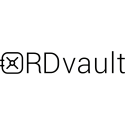AAT Level 1 Award in Bookkeeping
- Learning Hours: 35-40
- Duration: Up to 4 Months
- Exams: 1
This introductory qualification equips you with essential practical skills and foundational techniques to confidently navigate and thrive in diverse business environments. Gain valuable insights and broaden your understanding of key business concepts to set your career path on the right track.
Ready to build your business skills? Enrol now and take your first step towards success!
AAT Level 1 Award in Bookkeeping (Q2022)
Embark on your journey in bookkeeping with Future Connect Training’s AAT Level 1 Award in Bookkeeping. Specifically tailored for beginners, this comprehensive course provides the foundational skills necessary to kickstart your career in finance or pursue advanced accounting studies.
Course Overview
The AAT Level 1 Award in Bookkeeping offers introductory knowledge and confidence in manual bookkeeping. It is ideal for those new to finance, equipping learners with essential financial transaction processing and core accounting principles.
Qualification Level: Level 1
Duration: Flexible (Typically 6–12 weeks)
Mode of Study: Online learning with personal tutor support
Assessments: Single computer-based exam
Entry Requirements: No previous experience required
Who is this Course For?
This course is perfect for:
Individuals with no previous accounting or bookkeeping experience
Professionals aiming to enhance employability in finance roles
Entrepreneurs and small business owners
Career changers interested in finance roles
Learners assessing their skills before higher-level studies
In-Depth Course Content
This course covers crucial areas defined by the AAT qualification specification, including:
Duties and responsibilities, including data entry, accuracy, and compliance
Ethical considerations such as confidentiality and money laundering obligations
The impact of timely and accurate financial information
Classification of financial items (assets, liabilities, income, expenses)
Understanding dual-effect bookkeeping transactions
Basic accounting equation concepts
Differences between cash and credit transactions
Preparing and reviewing invoices, credit notes, and associated documentation
Making accurate entries in sales and purchase daybooks
Recording transactions in a cash book
Calculating closing amounts of cash and bank balances
Cross-checking bank statements and reconciling differences
Identifying outstanding customer and supplier balances
Features and advantages of accounting software versus manual methods
Exploring cloud-based and traditional accounting software
Security threats and protective measures for software usage
Learning Experience
Enjoy an interactive and supportive online learning experience, including:
Access to comprehensive online resources available 24/7
Regular support from experienced bookkeeping tutors
Practical exercises and assessments for skill reinforcement
Mock exams to ensure exam readiness

Please fill the following form so our team can contact you
Career Prospects
Upon course completion, you will be qualified for entry-level roles such as:
Bookkeeping Assistant
Accounts Clerk
Finance Administrator
Trainee Bookkeeper
Progression to senior roles like Senior Bookkeeper or Accounting Technician is achievable through further studies.
Progression Pathways
Students typically progress to:
AAT Level 2 Certificate in Bookkeeping
AAT Level 2 Certificate in Accounting
Guidance on career progression is available through personalized tutor support.
Fees and Funding
Course Fee: Transparent and flexible pricing
AAT Registration Fee: Approximately £46
Exam Fee: Approximately £110
Why Choose Future Connect Training?
Practical Approach: Hands-on real-world scenarios
Expert Tutors: Personalized and professional support
Career Support: Advice for career advancement
Flexible Learning: Study at your own convenience
Student Testimonials
“Future Connect provided excellent resources and invaluable tutor support. I confidently handle bookkeeping tasks in my business now.” – Maria S.
“The flexible schedule and thorough course materials greatly enhanced my learning. Highly recommend this course!” – James T.
Additional Insights from Qualification Specification
Ethical Standards: Learn about AAT’s rigorous ethical standards, including confidentiality, integrity, and objectivity, essential for bookkeeping professionals.
Software Integration: Understand benefits like real-time reporting, automation of tasks, and security measures crucial in modern bookkeeping practices.
Employment Readiness: Develop skills that directly meet employer expectations, ensuring readiness for junior accounting roles.
Frequently Asked Questions (FAQs)
No prior experience is needed. The course is designed for complete beginners.
Most students complete the course within 6–12 weeks, depending on individual pace.
You will take one computer-based assessment at the end of your course, administered under controlled conditions.
Roles like Bookkeeping Assistant, Accounts Administrator, and Finance Administrator become accessible.
Yes, the entire course is delivered online, offering maximum flexibility to suit your schedule.
Yes, additional fees include AAT registration (approximately £44) and exam fees (approximately £38).
Yes, many students progress to the AAT Level 2 Certificate in Bookkeeping or Accounting.
Bookkeeping software saves time, reduces human errors, automates repetitive tasks, and provides real-time financial reporting.
Strong passwords, encryption, antivirus software, secure networks, and understanding data protection regulations help maintain confidentiality.
Each financial transaction affects at least two accounts, maintaining the balance within the accounting system.
You can retake the assessment as there are no restrictions on re-sits. However, you should discuss your results with your tutor and prepare thoroughly before re-attempting.
Your results will be available via MyAAT within 24 hours of completing your assessment.
Yes, practice assessments are provided to help you become familiar with the exam format and question types.
Start Your Bookkeeping Journey
Enroll in Future Connect Training’s AAT Level 1 Award in Bookkeeping today, and confidently take your first steps toward a rewarding career in finance!
Our Achievements: Recognised Excellence in AAT
Future Connect Training and Recruitment has been ....
We Are Delighted To Announce That Future Connect Training And Recruitment Has Won....
Trusted By
.png)
.png)









.png)





















.webp)


